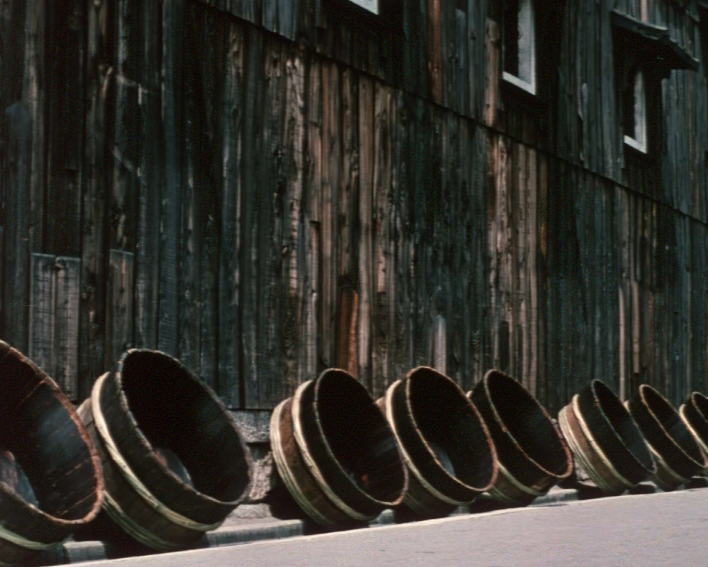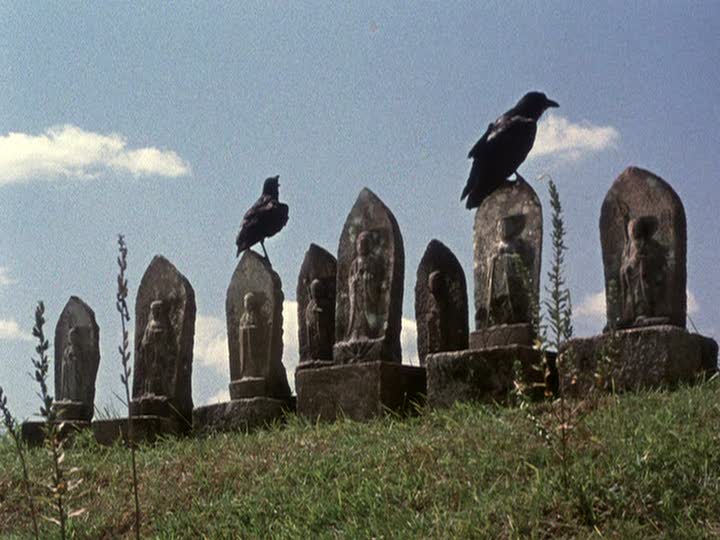Ozu’s End of Summer
Christine Haroutounian
8/1/2011


Time is directly emphasized in Yasujirō Ozu’s The End of Summer, in which various characters
speak the line “time flies” periodically. Like the unvarying buzz of cicadas, the
inescapable, unbearable heat, and the ubiquitous use of hand fans featured throughout the
film, the weight of time is always felt; the characters are subject to it just as they are to
the cruel conditions of the summer days. Here, it seems as if the symbol of the circle is
less subtle than in the rest of the auteur’s line of work, and perhaps it’s because this is one of Ozu’s more pronounced films on death. After Manbei Kohayagawa (Ganjiro Nakamura) suffers a heart attack, one can notice a plethora of circular objects that are often planted in his path, from intricate Japanese umbrellas to wooden crate-like structures resting on the streets he walks on. His close encounter with death has his entire family concerned about him, yet he seems to think of his graze with death as a kind of rebirth; Manbei is full of new energy afterward, and even participates in childlike games with his grandson. The young and old begin to merge as both grandfather and grandson share similar characteristics.


